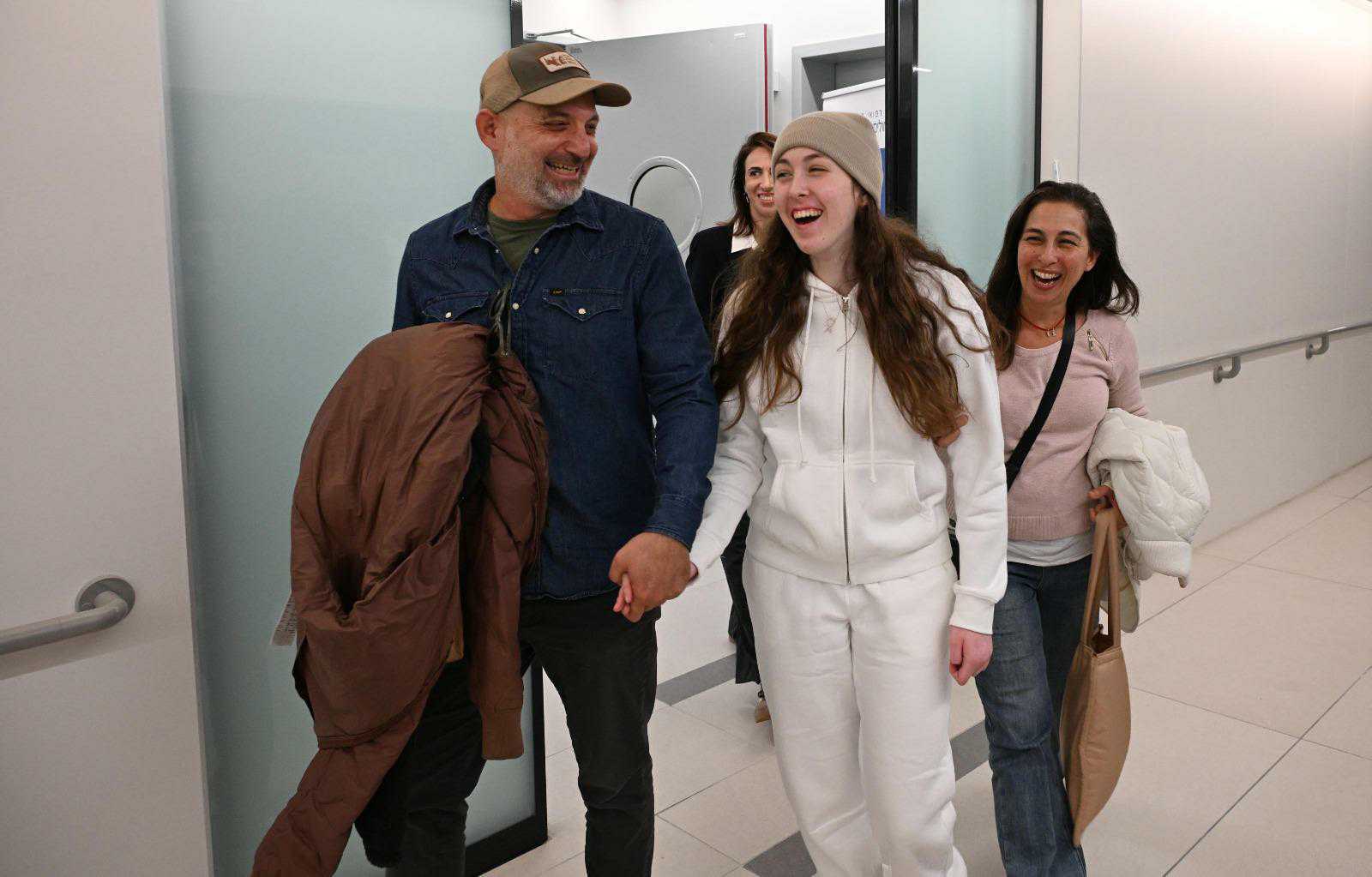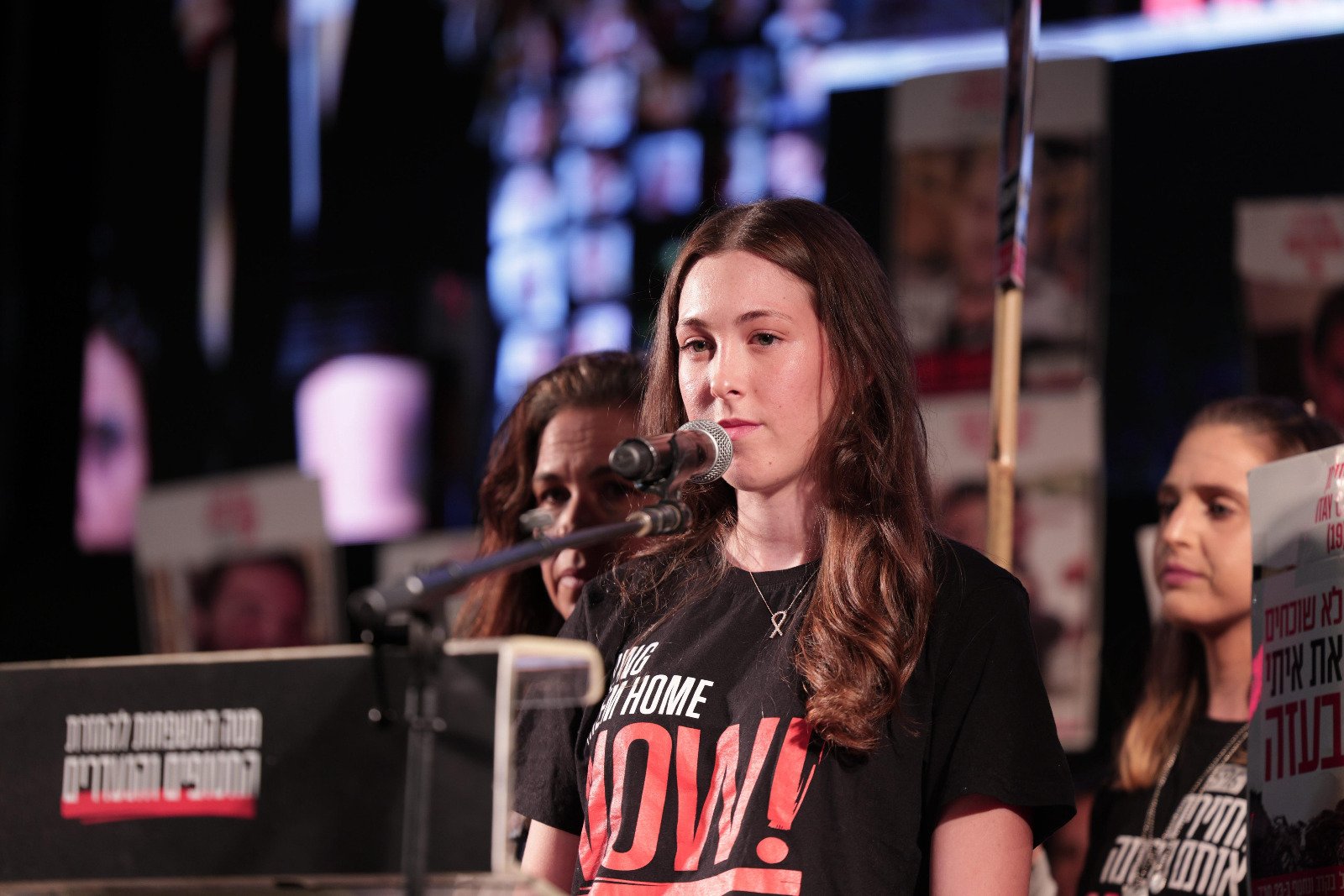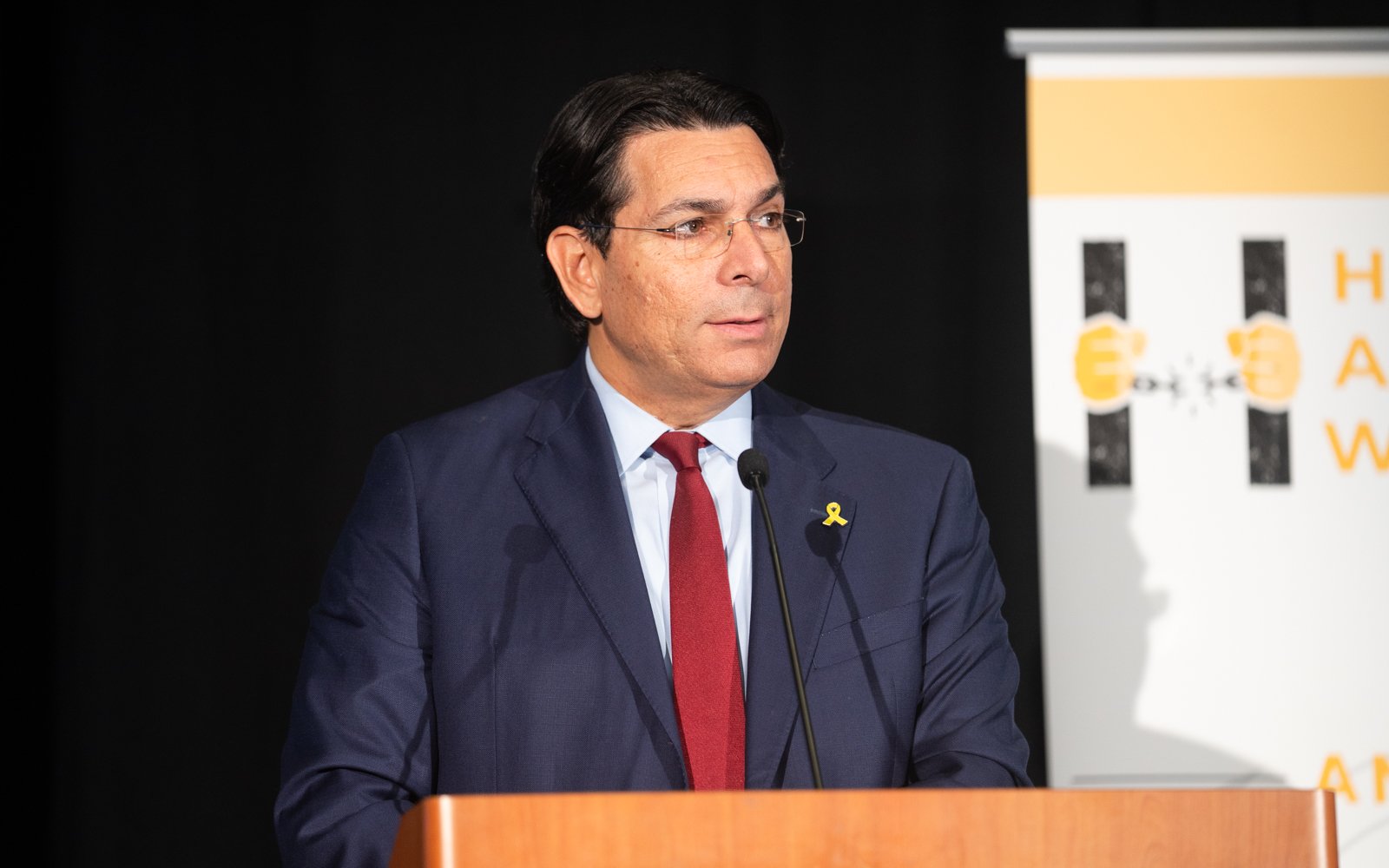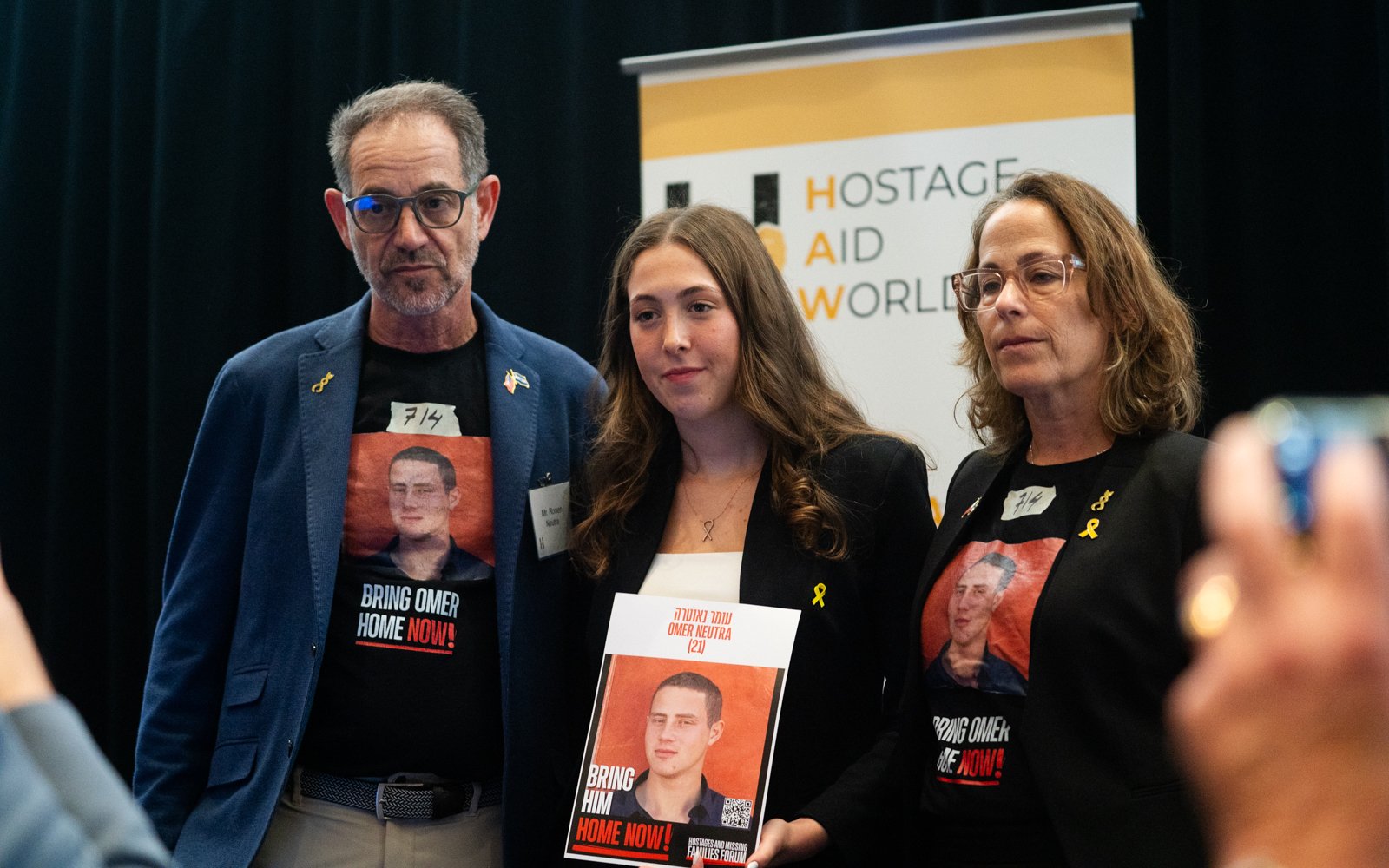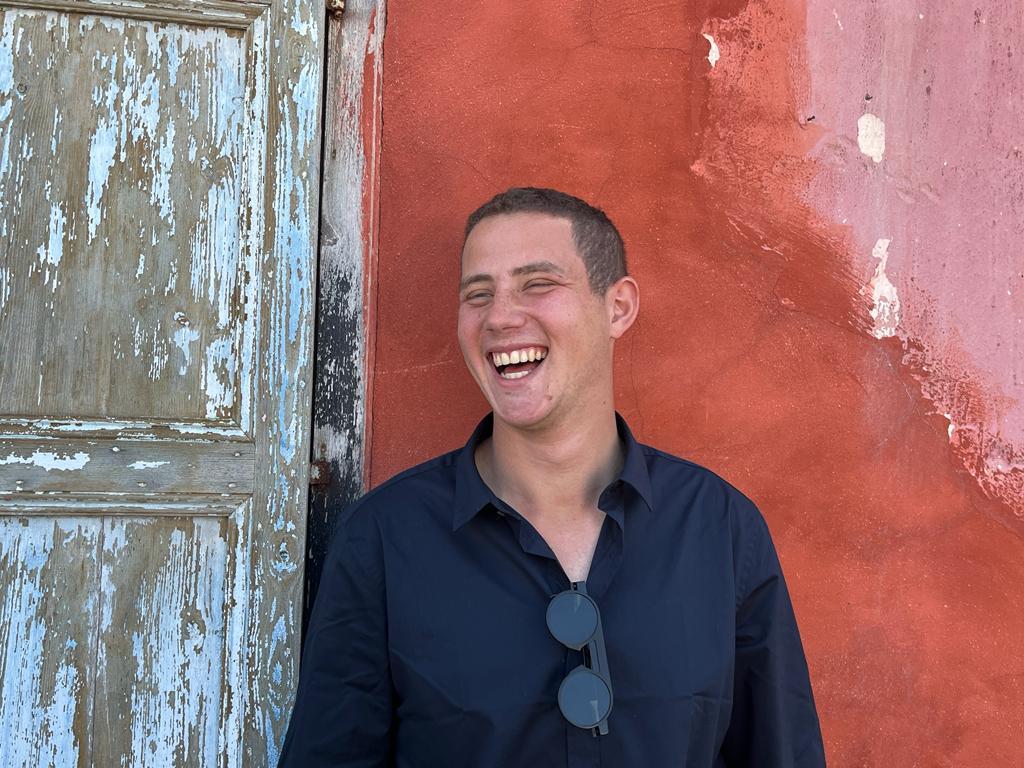

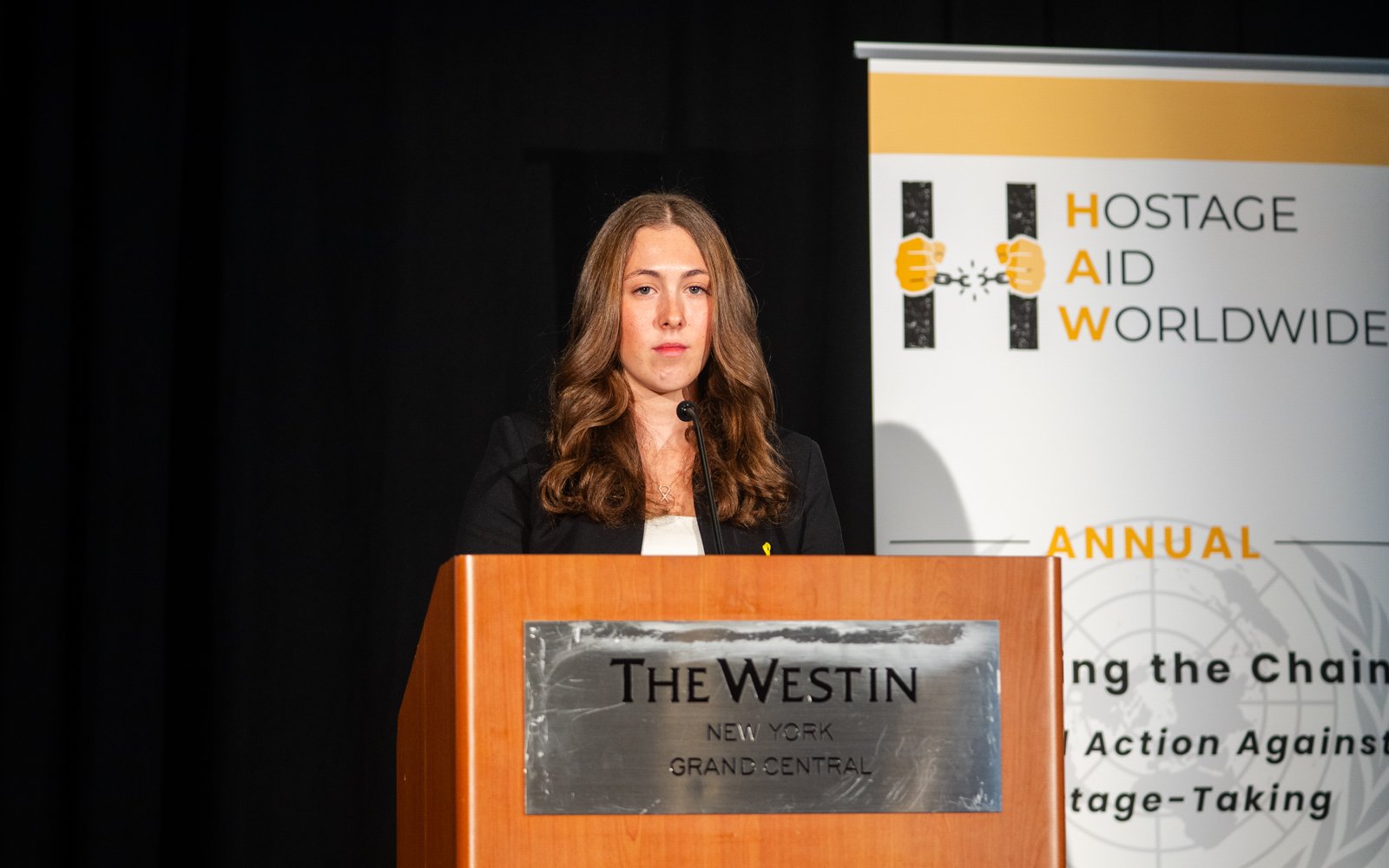
NEW YORK — Former Hamas hostage Naama Levy on Friday urged diplomats in New York City to use diplomacy and negotiations to free the captives still held in Gaza.
“I implore you, there is no greater crisis to work toward ending, this unbearable situation for the hostages. Diplomacy and agreement brought me back. That same diplomacy must bring back all the people who can still be saved,” she said.
Levy, freed in January in a ceasefire-hostage release deal, spoke on the sidelines of the United Nations General Assembly at an event held by the Hostage Aid Worldwide advocacy group. The General Assembly’s High-Level Week begins on Monday.
The event was attended by representatives from the United Nations and from countries’ UN missions, including Israel, the US, the UK and Germany.
Levy described being taken captive and held in Gaza.
“I suffered severe malnutrition, indescribable hunger and many untreated injuries. I was kept in unbearable, unsanitary conditions with the constant fear that each moment could be my last,” she said, speaking in English. “My time being held hostage will remain carved into my body and soul for the rest of my life.”
She said of the hostages she met in Gaza who remain in captivity: “Their faces don’t leave me, their voices are silenced.”
Levy said the most terrifying moments for her were being moved between locations during combat.
“I was forced to run from house to house with my two captors, terrified and under fire. I could hear the gunshots and bullets whistling past my ears. I ran as fast as I could, struggling to breathe, while my captors reloaded their weapons,” she said.
“I was terrified for my life every single moment. Being hidden above ground was horrible, but there’s nothing that can compare to the darkness and dread that the tunnels bring,” she said. “It’s empty of oxygen. It feels impossible to take a deep breath, and each time you try to, you choke from the lack of air.”
Levy called for diplomacy and negotiations to free the captives. Data presented by Hostage Aid Worldwide showed that a plurality of hostage releases worldwide this year, around 40 percent, were secured through negotiations, often through captive exchanges. Following negotiated releases, ransom deals accounted for 35% of releases, and tactical rescues, 16%. Humanitarian releases were rare, the group said.
“The hardest times, mentally, during my captivity were the periods when there was no news at all about negotiations,” Levy said.
“Please act to find a solution immediately. Save these innocent lives, for when you do, it is as if you have saved the entire world. Bring them all home now,” she said.
Levy was accompanied by her father during the event, her only public appearance during her visit to New York.
Israel’s envoy to the UN, Danny Danon, applauded Levy, saying, “The world first saw you as a victim of cruelty, but you refused to be broken. What they could not take was your dignity, what they could not erase was your courage.”
He criticized the UN, saying Israel had brought former hostages and the families of captives to raise awareness, but “Too often, we’re met with silence at the UN.”
“Sometimes with efforts to shut voices down, sometimes with indifference, sometimes with false claims. When they try to balance and to make the equation between the innocent victims and the ones who are guilty, that’s unacceptable,” he said.
He called for a forceful response to hostage-taking.
“Hostages are freed only when real pressure is applied — military, intelligence, diplomatic. Terrorists release captives only when they feel weak,” he said. “When their networks break, when their leaders fall, their grip loosens; that is when we can have a deal, and we hope to have another deal.”
Also in attendance were Ronen and Orna Neutra, the parents of Omer Neutra, an American-Israeli killed on October 7, 2023, and dragged into Gaza, where his body remains.
Ronen Neutra said the family has been meeting with the administration in Washington, DC, including with US Secretary of State Marco Rubio, last week.
Neutra said they had encouraged Rubio to put pressure on Israel and Qatar to bring Hamas and Israel back to the negotiating table.
Neutra said the US is “serious about trying to get to a deal, but unfortunately, I don’t see them putting enough pressure on Netanyahu to end the war.”
He criticized the Israeli strike against Hamas leadership in Qatar, saying the attack had foiled negotiations, and added that the family has had little contact with the Israeli government.
“It’s extremely frustrating to the families to be close to a deal and to see Israel attacking and basically putting the negotiations again on serious hold while the Israeli army is supposed to take on Gaza City,” Neutra told The Times of Israel. “There is a tremendous risk to the living hostages to be killed.”
“Our son, who was born here in the United States and grew up here and decided to join the IDF and do his share, he needs to be brought to a proper burial in Israel. Israeli mothers that are sending their soldiers to war need to know that the Israeli government is taking care of them,” he said.
He pointed out that, in the past eight months, no hostages have been released besides American-Israeli Edan Alexander, who was released under pressure from the Trump administration.
“We feel the key, end of the day, has been held by Bibi Netanyahu and his continuous jeopardizing of deals and extending the war, claiming that it’s going to get the hostages,” he said. ” It’s super frustrating, it’s risky, and it keeps us as families 714 days under an ongoing terror attack that never ends, and it needs to come to an end.”
Hostage Aid Worldwide takes a global approach to advocating for captives, and in addition to Levy, speakers included a former hostage of Iran and an ex-captive of the Islamic State.
The organization said that, this year, the top countries for hostage-taking were Iran, Venezuela, Niger and Burkina Faso. The most commonly detained nationalities were Americans and British.


